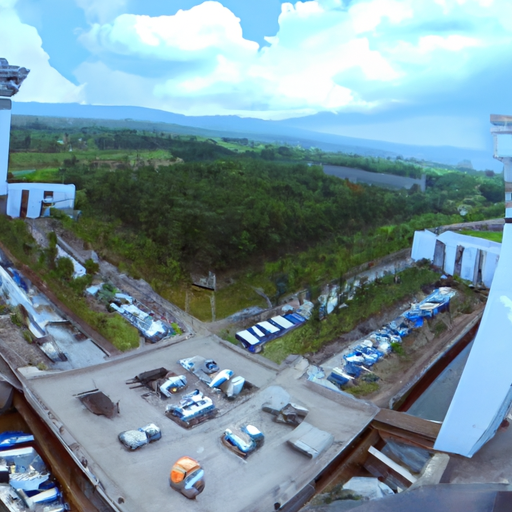Exploring the Surge in International Travel: Insights from SiteMinder Research
As the world gradually emerges from the shadow of the pandemic, a new wave of wanderlust is sweeping across the globe. According to recent research by SiteMinder, a leading guest acquisition platform, around 1-in-2 people are planning to travel more, and interestingly, they are setting their sights on international destinations only. This surge in international travel is set to significantly impact global accommodation trends, and understanding these shifts is crucial for businesses in the hospitality sector.
SiteMinder’s research provides a fascinating glimpse into the travel plans and motivations of people in the post-pandemic world. The study reveals that people are not just eager to travel again, but they are also willing to venture further from home. This is a marked departure from the trend observed during the pandemic, where local or domestic travel was the preferred choice due to travel restrictions and safety concerns.
The reasons behind this shift are manifold. For one, there’s a pent-up desire to explore new cultures, cuisines, and landscapes after months of confinement. The pandemic has also made people realize the importance of seizing the moment, leading to a ‘now or never’ attitude towards international travel. Moreover, the rollout of vaccines has instilled a sense of confidence in travelers, making them more comfortable with the idea of crossing borders.
This surge in international travel is set to have a profound impact on accommodation globally. Hotels, resorts, and other accommodation providers need to gear up for an influx of international guests. This means not just ensuring that their facilities are safe and hygienic, but also tailoring their services to cater to the diverse needs and preferences of international travelers.
For instance, travelers today are looking for more than just a place to sleep. They want experiences that are unique, authentic, and personalized. Accommodation providers need to think beyond the traditional and offer immersive experiences that allow guests to connect with the local culture and environment. This could range from cooking classes with local chefs to guided tours of offbeat attractions.
Moreover, sustainability is a key concern for today’s travelers. They are increasingly choosing accommodation providers who are committed to sustainable practices, be it in terms of energy use, waste management, or community engagement. Accommodation providers need to demonstrate their commitment to sustainability not just in their operations, but also in their communication with guests.
Technology, too, plays a crucial role in shaping the accommodation preferences of international travelers. From seamless online booking processes to digital concierge services, travelers are seeking tech-enabled solutions that enhance convenience and personalization. Accommodation providers need to embrace digital transformation to meet these expectations.
In conclusion, the surge in international travel presents both opportunities and challenges for the global accommodation sector. By understanding the evolving preferences of travelers and adapting their offerings accordingly, accommodation providers can not only survive but thrive in the post-pandemic world. As the world opens up again, it’s clear that the future of travel is international, and the accommodation sector needs to gear up for this exciting new chapter.
Understanding the Motivations Behind Increased Global Travel: A Study by SiteMinder

As the world gradually reopens after a long period of lockdowns and travel restrictions, a new study by SiteMinder reveals that around 1-in-2 people are planning to travel more, and interestingly, their sights are set on international destinations only. This surge in global travel is set to significantly impact accommodation providers worldwide, and understanding the motivations behind this trend is crucial for businesses looking to capitalize on this opportunity.
The SiteMinder research, which surveyed thousands of travelers across multiple countries, found that the desire to travel internationally is driven by a variety of factors. One of the most prominent motivations is the simple longing for new experiences. After being cooped up at home for months on end, many people are eager to break free from their routine and immerse themselves in different cultures, cuisines, and landscapes. This thirst for novelty and adventure is a powerful driving force that accommodation providers should take into account when marketing their offerings.
Another key motivation identified by the study is the need for human connection. The pandemic has underscored the importance of relationships and the joy of shared experiences. As a result, many travelers are planning trips to visit family and friends they haven’t seen in a long time. Accommodation providers can tap into this trend by offering family-friendly amenities and services, or by creating special packages for reunions and get-togethers.
The research also highlighted the role of pent-up demand in fueling the surge in international travel. Many people had to cancel or postpone their travel plans due to the pandemic, and they are now eager to make up for lost time. This backlog of unfulfilled travel desires is a significant factor that accommodation providers should consider in their planning and strategy.
Interestingly, the study found that the increased interest in international travel is not just a short-term reaction to the easing of travel restrictions. Many respondents indicated that they intend to travel more frequently in the future, suggesting a long-term shift in travel behavior. This trend presents a golden opportunity for accommodation providers to build lasting relationships with customers and secure repeat business.
The SiteMinder research also revealed that travelers are becoming more discerning and demanding in their choice of accommodation. They are looking for properties that offer a unique and memorable experience, rather than just a place to sleep. This trend underscores the importance of differentiation and personalization in the highly competitive accommodation market.
In conclusion, the SiteMinder study provides valuable insights into the motivations driving the surge in international travel. The desire for new experiences, the need for human connection, pent-up demand, and a long-term shift in travel behavior are all factors that accommodation providers need to consider in their strategy and planning. By understanding these motivations and responding to them effectively, businesses can position themselves to benefit from the boom in global travel.
The Impact of Increased International Travel on Global Accommodation: Findings from SiteMinder Research
As the world gradually emerges from the shadow of the pandemic, a new wave of wanderlust is set to sweep across the globe. According to recent research by SiteMinder, a leading guest acquisition platform, around 1-in-2 people are planning to travel more, and interestingly, they are setting their sights on international destinations only. This surge in international travel is poised to have a significant impact on global accommodation, reshaping the hospitality industry in ways we are just beginning to understand.
The SiteMinder study, which surveyed thousands of travelers worldwide, revealed that the desire to explore new cultures, experience different cuisines, and immerse oneself in unfamiliar environments is stronger than ever. This is a clear indication that the travel restrictions and lockdowns of the past year have only intensified our collective yearning for global exploration.
This anticipated increase in international travel is set to bring about a boom in the global accommodation sector. Hotels, resorts, and other lodging establishments in popular tourist destinations can expect a surge in bookings as travelers embark on their long-awaited adventures. This is a welcome development for an industry that has been hit hard by the pandemic, offering a much-needed boost to revenues and employment.
However, this influx of international travelers also presents certain challenges. Accommodation providers will need to adapt to changing traveler preferences and expectations. The SiteMinder research found that travelers are now more conscious about health and safety protocols, and are likely to favor accommodations that can demonstrate stringent hygiene practices. Moreover, there is a growing demand for personalized experiences, with travelers seeking accommodations that can offer unique and authentic local experiences.
The research also highlighted the increasing importance of technology in the travel and accommodation sector. Travelers are now more comfortable with digital tools and platforms, and expect seamless online booking experiences. Accommodation providers will need to invest in technology to meet these expectations, from user-friendly websites and mobile apps to digital check-in services and contactless payment options.
Sustainability is another key factor that is set to influence the global accommodation sector. The SiteMinder study found that a significant number of travelers are now more conscious about their environmental footprint and are likely to choose accommodations that prioritize sustainable practices. This trend presents an opportunity for accommodation providers to differentiate themselves by implementing green initiatives, from energy-efficient operations to waste reduction programs.
In conclusion, the anticipated increase in international travel presents both opportunities and challenges for the global accommodation sector. The industry will need to adapt and innovate to meet changing traveler preferences and expectations. However, with the right strategies and investments, accommodation providers can ride this wave of international travel and emerge stronger in the post-pandemic world. The findings from the SiteMinder research provide valuable insights that can guide these efforts, helping the industry navigate the path ahead. As we pack our bags and dust off our passports, it’s clear that our desire to explore the world is not just reshaping our own lives, but also the global accommodation sector that makes our adventures possible.
